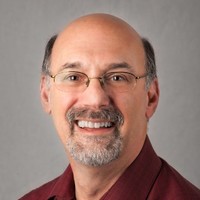 ConstantEdu
ConstantEdu
Guide to Setting up your Business as a Solo-Practitioner
No CEs for this workshop
Learning Objectives:
Learn pros and cons of different options of tax structures for your practice. Develop a financial plan for your practice. How to optimize your business deductions. Learn advantages of setting up a home office. Why, if you are married and/or have children, it is advantageous to hire them. Start planning for your own retirement.
Course Description:
There are many reasons to become a private practitioner, for example: autonomy and independence, choosing your clients, flexibility in parenting or care-giving, etc. We will discuss the financial and business sides of opening your own practice. Topics will include what type of tax structure you might want to use, the various licenses and insurances you may need, and on taxes (income, state, self-employment, and unemployment), as well as how to reduce those taxes via optimizing your business deductions.
Other information and discussion topics include establishing a home office, why nepotism (hiring a spouse or children) is good, and start looking at planning for your retirement.
There are substantial handouts and resources provided, so you can focus on the discussions and not spend all of your time taking notes…
EPDC CE Hours: 0
Presenter: Sandy Voit
Sandy Voit, a Certified Divorce Financial Analyst, and Licensed Mental Health Counselor, specializes in personal finances counseling, helping professionals in starting, and retiring, from private practices, retirement planning, and helping divorcing couples negotiate financial settlements. Sandy earned an MS in Counseling and Personnel Services from the University at Albany. After a career in higher education administration for 27 years, at five universities (including positions as Director of Financial Aid, and Dean of Students at Bastyr University), he served as executive director at a large synagogue in Seattle, before establishing a financial counseling private practice in 2006. He has served on many boards, including the Association of Divorce Financial Professionals, King County Collaborative Law, National Association of Temple Administrators, and is currently on the board of Puget Consumer’s Co-op (PCC) board (for 20 years, but not consecutively), including several terms as chair.
